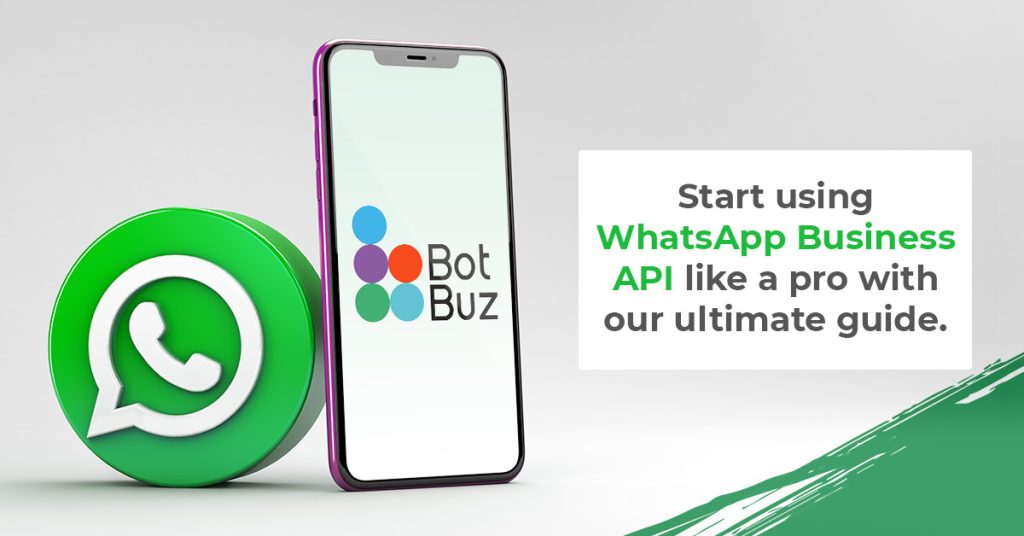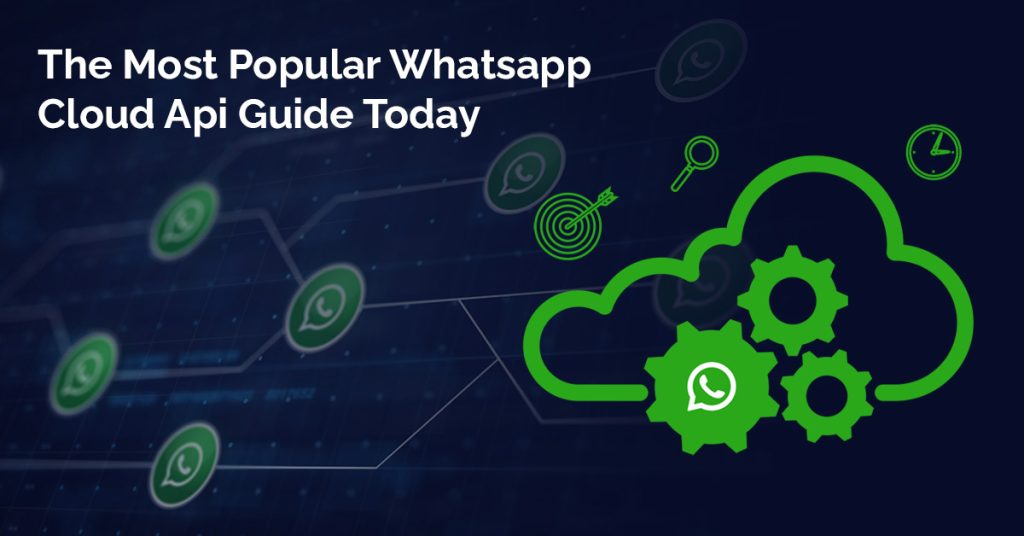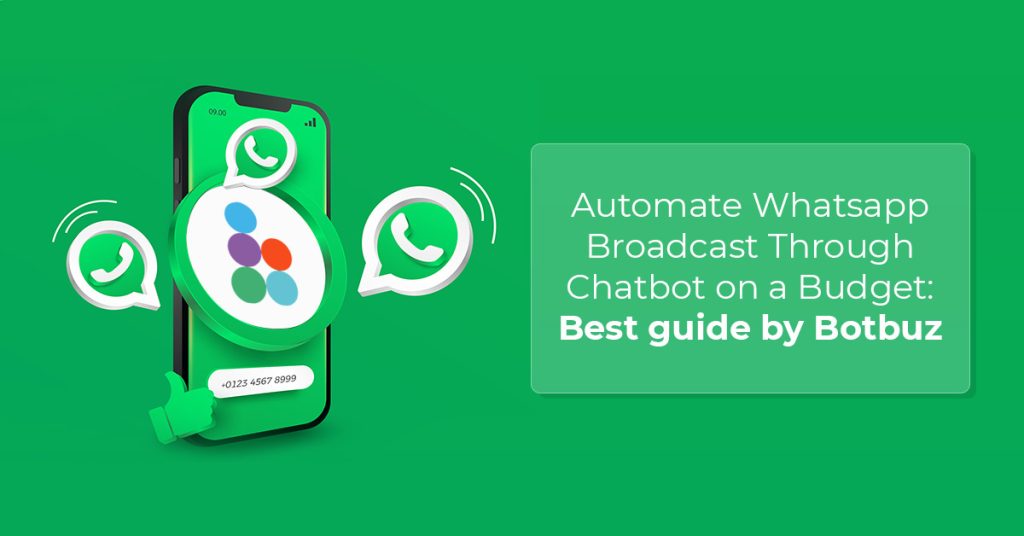- WhatsApp Business APIs - Connecting Your Business to Customers :
- WhatsApp Business Platform :
- WhatsApp On-Premise API :
- WhatsApp Cloud API :
- Key Differences Between Cloud API and On-Premise API : A Quick Comparison
- Which WhatsApp API is Right for Your Business?
- How to Choose Between WhatsApp Cloud API and On-Premise API ?
- Botbuz : Your Ideal WhatsApp Business Platform API Partner
- Conclusion : Choosing the Right Path to WhatsApp Success
WhatsApp Business APIs - Connecting Your Business to Customers :
WhatsApp has become a ubiquitous communication platform. Its Business APIs offer a powerful way for businesses to connect with their customers directly within this familiar environment. These APIs allow for automated messaging. It’s personalized experiences, and streamlined customer support, opens a world of possibilities for improving customer engagement and driving business growth. However, the landscape of WhatsApp Business APIs can be complex. But choosing the right one is crucial for success.
The importance of selecting the correct API cannot be overstated. The wrong choice can lead to limitations in functionality. It can even cause scalability issues, increased costs, and security vulnerabilities. A well-suited API, on the other hand, empowers businesses to automate key processes. It provides better customer service, and ultimately, achieves their business objectives.
There are two primary types of WhatsApp Business APIs : the WhatsApp Cloud API and the On-Premise API (also sometimes referred to as the WhatsApp Business API Platform). Understanding the differences between these two options is essential for making an informed decision.
WhatsApp Business Platform :
The WhatsApp Business Platform is a powerful tool designed for medium and large businesses to connect with customers on WhatsApp in a structured and scalable manner. It goes beyond simple messaging. It provides a robust platform for integrating WhatsApp into existing business systems and workflows.
Businesses utilize WhatsApp APIs for a variety of communication needs. It provides instant customer support and answers questions. It is often through automated chatbots, to send timely notifications and updates about orders, deliveries, or appointments, proactively keeping customers informed. It also facilitates marketing and promotions by sharing targeted offers and product updates with customers who have opted in, driving sales and engagement.
Furthermore, the platform enables two-way conversations. It allows businesses to engage in rich, interactive exchanges with customers. It also helps to gather feedback, and offer personalized recommendations. Even account management can be handled through WhatsApp. It allows customers to track orders and update their information directly within the app.
WhatsApp On-Premise API :
The WhatsApp On-Premise API offers businesses a direct, though more complex, approach to integrating WhatsApp into their operations. Unlike cloud-based solutions, the On-Premise API involves hosting the necessary infrastructure directly on the business’s own servers. This grants a high degree of control over data and allows for extensive customization.
Essentially, the business installs and manages the software and tools required to connect to WhatsApp’s messaging system. It also handles everything from message routing to security. This direct connection between the business’s systems and WhatsApp’s servers enables sending and receiving messages programmatically.
Key features include deep integration with existing systems like CRM and ERP. It also has a high level of customization for message flows and user interfaces, and complete data control as it resides on the business’s servers. While it offers scalability to handle large message volumes, this requires careful planning and management.
WhatsApp Cloud API :
The WhatsApp Cloud API offers a simplified and scalable way for businesses to integrate WhatsApp into their workflows. Unlike the On-Premise API, the Cloud API eliminates the need for businesses to manage their own server infrastructure. Instead, the API is hosted and managed by Meta and its approved Business Solution Providers (BSPs).
Businesses connect to the API through these providers. It makes the integration process much easier. Essentially, businesses send and receive messages through a cloud-based interface. Key features include its cloud-based nature, eliminating the need for on-premise servers. It has inherent scalability to handle fluctuating message volumes & simplifies integration with existing business systems. It also reduces maintenance as Meta and BSPs handle updates, and a typically pay-as-you-go pricing model.
Key Differences Between Cloud API and On-Premise API : A Quick Comparison
|
Feature
|
Cloud API
|
On-Premise API
|
|---|---|---|
|
Hosting
|
Meta & BSPs (Cloud)
|
Business (On-Premise Servers)
|
|
Management
|
Meta & BSPs
|
Meta & BSPs
|
|
Cost
|
Lower upfront, usage-based
|
Higher upfront, ongoing maintenance
|
|
Customization
|
Limited
|
Extensive
|
|
Data Control
|
Less direct control
|
More direct control
|
|
Maintenance
|
Minimal
|
Significant
|
|
Technical Expertise
|
Less required
|
Highly required
|
|
Deployment
|
Faster
|
Slower
|
Which WhatsApp API is Right for Your Business?
Choosing the right WhatsApp API for your business depends on a number of key factors. Before making a decision, you need to carefully consider your technical expertise. Do you have a dedicated IT team capable of managing complex server infrastructure and API integrations ? Or are you relying on a smaller team with less specialized knowledge? Budget is another crucial aspect. What are your limits for upfront investment and ongoing maintenance costs? Think about your scalability needs. How much do you anticipate your messaging volume to grow in the future?
Data security and control are also paramount. How important is it for you to have complete control over your data, especially considering data residency and compliance regulations? Consider your customization requirements. Do you need highly customized integrations and workflows, or will more standard functionalities suffice? The complexity of integrating WhatsApp with your existing systems is another important factor. Finally, how quickly do you need to get your WhatsApp integration up and running? A rapid deployment might favor one API over the other.
The WhatsApp Cloud API is ideally suited for small and medium-sized businesses with limited IT resources and budgets. Startups also benefit from its fast and cost-effective solution. Companies with high growth potential, anticipating rapid scaling of messaging volume, find it advantageous. Businesses needing basic integrations, like connecting to a CRM, and those prioritizing speed and ease of deployment also find the Cloud API a better fit. It’s also well-suited for customer support and notification systems.
On the other hand, the WhatsApp On-Premise API is best for large enterprises with complex IT infrastructure and dedicated IT teams. Businesses with stringent data security requirements, needing complete control over their data due to regulatory or compliance reasons, should consider the On-Premise option.
Companies requiring extensive customization and highly tailored integrations and workflows also lean towards the On-Premise API. If you have complex integrations with multiple systems and handle high message volumes requiring advanced message routing, the On-Premise API is often the better choice. Finally, if your business has specific data residency requirements, mandating that customer data reside in a particular geographic location, the On-Premise API might be necessary.
In essence, while the Cloud API is generally the best choice for most businesses due to its ease of use, scalability, and lower cost. The On-Premise API caters to large enterprises with very specific needs related to data control, customization, and complex integrations.
How to Choose Between WhatsApp Cloud API and On-Premise API ?
Choosing between the WhatsApp Cloud API and the On-Premise API is a strategic decision. It requires careful consideration of several key factors. First, assess your business size and communication needs. Small to medium-sized businesses and startups, often with simpler communication requirements and limited IT resources, typically prioritize speed, cost-effectiveness, and ease of implementation.
For these businesses, the Cloud API is usually a better fit. Large enterprises, on the other hand, often have complex communication workflows. It also has high message volumes, and stringent data security needs. They may require deep integrations with existing systems and extensive customization. Thus, making the On-Premise API a more suitable option. Consider your projected message volume, the complexity of your customer interactions, and the number of teams that need access to the API.
Next, conduct a thorough cost analysis, comparing upfront versus long-term investments. The Cloud API generally has lower upfront costs, as you don’t need to invest in server infrastructure. However, ongoing costs are usually usage-based. So expenses can scale with your message volume. Carefully analyze the pricing models of different Business Solution Providers (BSPs) to estimate your long-term costs.
The On-Premise API, conversely, requires a significant upfront investment in server hardware, software licenses, and IT setup. Ongoing costs include server maintenance, software updates, and IT support. While the initial investment is higher, long-term costs might be more predictable. It is especially for businesses with consistently high message volumes. A thorough cost-benefit analysis, comparing the total cost of ownership over a few years, is crucial.
Compliance and data security are paramount. Consider data residency – where your customer data is stored. The Cloud API usually involves data being stored in data centers managed by Meta or the BSP. It might not meet the data residency requirements of all businesses or industries. The On-Premise API allows you to keep data within your own infrastructure, giving you greater control over data location.
Compliance with industry-specific regulations, like GDPR or HIPAA, is also essential. Certain industries might require the greater control and security offered by the On-Premise API. While both options offer security features, the On-Premise API gives you more direct control over security measures. It also places full responsibility for implementing and maintaining them on you. With the Cloud API, security is a shared responsibility.
Finally, evaluate future scalability and ease of implementation. The Cloud API is designed for scalability. It can easily handle increasing message volumes. Scaling the On-Premise API requires more planning and investment. The Cloud API is generally easier and faster to implement, especially for businesses with limited IT resources.
The On-Premise API requires more technical expertise and can take longer to set up. Consider how quickly you need your WhatsApp integration running and your internal IT support capacity. By carefully weighing these factors, you can make an informed decision about which API best aligns with your business needs. Consulting with BSPs is highly recommended to get expert advice and compare options.
Botbuz : Your Ideal WhatsApp Business Platform API Partner
Botbuz offers comprehensive WhatsApp Business API services. It is designed to help businesses of all sizes effectively use WhatsApp for communication and growth. Recognizing the complexities of WhatsApp Business APIs, Botbuz simplifies the process. It provides tailored solutions to fit specific needs. Several factors make Botbuz the ideal choice.
It offers a complete platform with tools and features ranging from easy system integration to powerful automation and analytics. It handles the technical aspects so businesses can focus on core operations. Botbuz’s infrastructure is built for scale and reliability. It ensures consistent uptime and message delivery even with increasing message volumes.
The platform boasts a user-friendly interface. It enables easy management of WhatsApp communication, chatbot creation, and performance tracking, even without technical expertise. Dedicated support is provided throughout the process, from onboarding to ongoing assistance. Competitive and flexible pricing plans cater to businesses of all sizes and budgets.
Finally, Botbuz focuses on continuous innovation. It regularly updates the platform with the latest features to provide access to the most advanced WhatsApp Business API solutions.
Botbuz facilitates seamless WhatsApp integration through several key mechanisms. Simplified API integration with easy-to-use APIs and documentation allows connection of existing systems like CRM and e-commerce platforms to WhatsApp.
A no-code chatbot builder empowers users to create automated conversations without coding knowledge. It designs custom flows for FAQs, customer support, and lead generation. Multi-agent support allows multiple team members to access and manage WhatsApp communication from a single platform. It helps in enhancing collaboration and responsiveness. Analytics and reporting tools track key metrics like delivery rates and customer responses. It enables measurement of communication effectiveness and provides insights for optimization.
As an approved WhatsApp Business Solution Provider, Botbuz helps businesses get their WhatsApp Business API account approved quickly and efficiently. It manages the onboarding process so businesses can start using WhatsApp for business immediately. Essentially, Botbuz is more than just an API provider. It acts as a partner, helping businesses leverage WhatsApp to connect with customers, improve satisfaction, and drive growth.
Conclusion : Choosing the Right Path to WhatsApp Success
Choosing the right WhatsApp API is a strategic decision. Carefully consider your business size, technical capabilities, budget, data security requirements, and long-term goals. Don’t rush the process. Evaluating your needs and comparing the options will lead to a more successful WhatsApp integration.
Botbuz provides a complete and seamless solution for businesses looking to leverage WhatsApp communication effectively. Our platform simplifies the integration process. It offers powerful automation tools & provides dedicated support to help you every step of the way. Whether you’re a small business starting with WhatsApp or a large enterprise needing a robust solution. Botbuz can empower you to connect with your customers. It enhances customer satisfaction, and drives business growth through WhatsApp.

Contact us today to explore how Botbuz can help you achieve your WhatsApp communication goals and unlock the full potential of this powerful platform.




